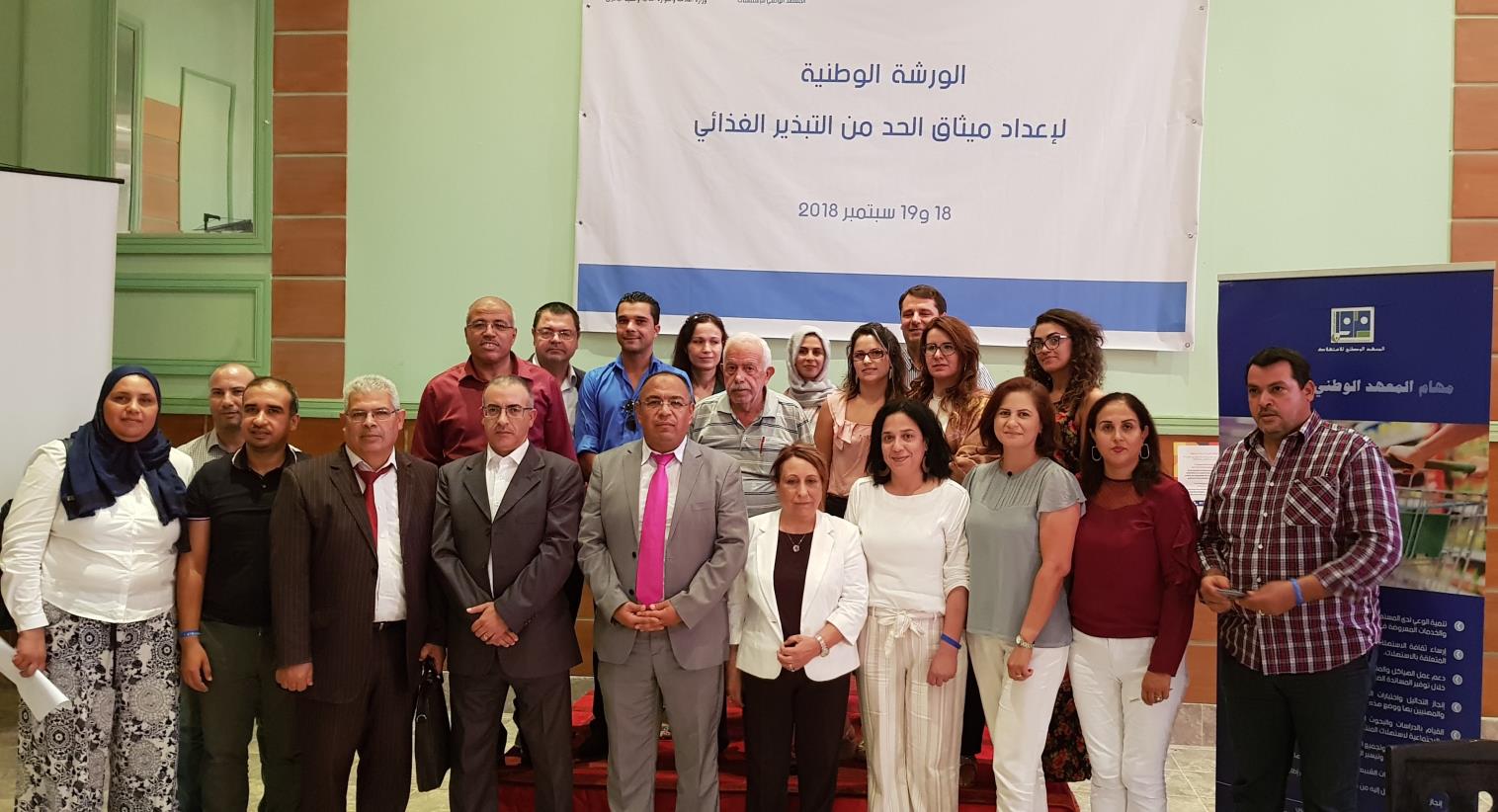Closing of the workshop on the elaboration of a National Charter for the fight against food waste

Tunis, September 20, 2018: As part of the UN Food and Agriculture Organization’s (FAO) project to reduce food losses and waste and as the outcome of a workshop for the elaboration of a National Charter for the fight against food waste, organized in Hammamet on 18 and 19 September, 2018, FAO congratulated Tunisia on its commitment to the fight against hunger through curbing food waste.
Representing FAO, Ms. Raoudha Khaldi, the national project expert, said: "We are proud of the cooperation with the National Institute of Consumption (INC) partner associated with this project and more particularly the initiative to formulate a National Charter to fight against food waste. This initiative reflects the concrete commitment of partners and stakeholders, both public and private, organizations and associations of civil society in Tunisia to deal with food waste, one of the biggest challenges to achieving the SDGs Sustainable Development Goals and more specifically Goal 2 on the eradication of hunger.”
Through this national charter, the FAO project aims to initiate good practices with national standards that would be able to become an example or model to follow at the level of other value chains in Tunisia as well as in other countries. In her speech, Ms. Raoudha Khaldi said that the organization of this workshop, in partnership with the Ministry of Agriculture, Water Resources and Fisheries, the Ministries of Industry, Trade and Environment, concerned chambers and university restaurants, was a crucial step in the formulation of this national charter. The charter will be signed in March, 2019, as part of the forthcoming Regional Congress organized by FAO to announce the results of FAO's global project to combat food losses and waste. The project, "Reducing Food Loss and Waste and Developing Value Chains for Food Security in Egypt and Tunisia", is being implemented in the Near East and North Africa region.
The project was launched by FAO in 2016 following a study that highlighted the strategic priorities at the level of the two countries where an analysis of the causes of food waste was carried out for grapes and tomatoes in Egypt and for dairy products and cereals in Tunisia. The starting point of the project was the alarming statistical data on the proportion of food waste, which amounted to about 200kg per person per year. The objectives of the project are to improve food security (quantitatively and qualitatively), to improve the level of incomes of farmers and small entrepreneurs, and the purchasing power of consumers, and finally to reduce the negative impact of food losses and waste on natural resources management.
